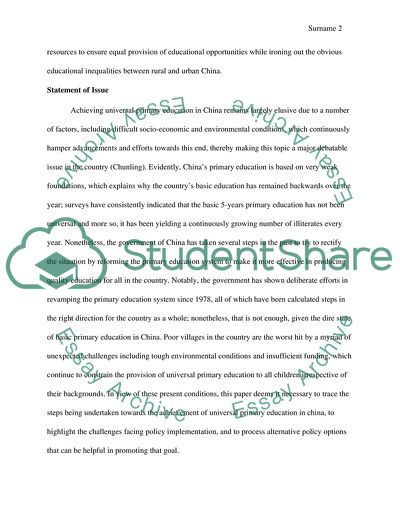Cite this document
(Achieving Universal Primary Education in China Report Example | Topics and Well Written Essays - 1500 words, n.d.)
Achieving Universal Primary Education in China Report Example | Topics and Well Written Essays - 1500 words. https://studentshare.org/education/1810288-achieving-universal-primary-education-in-china
Achieving Universal Primary Education in China Report Example | Topics and Well Written Essays - 1500 words. https://studentshare.org/education/1810288-achieving-universal-primary-education-in-china
(Achieving Universal Primary Education in China Report Example | Topics and Well Written Essays - 1500 Words)
Achieving Universal Primary Education in China Report Example | Topics and Well Written Essays - 1500 Words. https://studentshare.org/education/1810288-achieving-universal-primary-education-in-china.
Achieving Universal Primary Education in China Report Example | Topics and Well Written Essays - 1500 Words. https://studentshare.org/education/1810288-achieving-universal-primary-education-in-china.
“Achieving Universal Primary Education in China Report Example | Topics and Well Written Essays - 1500 Words”. https://studentshare.org/education/1810288-achieving-universal-primary-education-in-china.


